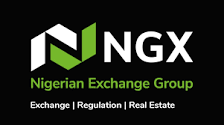The National Insurance Commission, NAICOM, has liberalised the licensing of operators for Takaful insurance with a view to bringing specialists outside the mainstream insurance industry into the sector.
Already, the Commission has licensed two such Takaful operators even as three other applications are being considered for licensing too.
This is even as it has also concluded the process of licensing two such micro insurance operators with four other applications nearing conclusion.
Giving these hints while addressing the 2018 Insurance Industry National Conference in Abuja, the Commissioner for Insurance, Mallam Mohammed Kari, explained that most of the applicants were from outside the mainstream Insurance providers.
He recalled that the Commission proactively developed and launched the Micro Insurance and Takaful, in response to the 2012 launch of the National Financial Inclusion Strategy (NFIS) by government to reduce the percentage of adults that are excluded from financial services.
Kari pointed out that the NFIS’ goals were driven by a broad range of coordinated interventions, including simplified Know Your Customer (KYC) regulations, agent banking, Microinsurance and Consumer Protection principles.
According to him, in order to achieve the set target of increasing the nation’s financial inclusion rate, the strategy identified some of the key barriers to financial inclusion and measures to curtail them as, lack of income, long distance to access points, lack of knowledge about financial service, high cost of services and cumbersome requirements, amongst others.
Kari explained that the insurance sector keyed into the initiative because of its critical role in all of these areas as an industry that helps to reduce the poverty line, supports entities and individuals manage their risks and protects them from negative adverse effects of unforeseeable events.
He also noted that in realization of the NFIS’ target for the insurance sector and the need to deepen insurance penetration, NAICOM did focus on two objectives, namely Insurance awareness campaign for the financially excluded and promoting the development of products and business models that meet the needs of the excluded groups.
According to him, to achieve its objectives, the Commission launched four specific product lines as a bottom-up approach for the excluded and low income members of the society respectively. These include, Microinsurance, Bancassurance, Takaful insurance, and the Index Based Agricultural Insurance (IBAI).
The industry regulator noted that though Insurance companies were permitted to offer the relevant products through “the window” models of operation, but upon gathering some experience the Commission reviewed the guidelines and up-scaled the operations to specialist and dedicated licensing to entice specialist operators from within and without the industry.
Kari explained further that the Commission also partnered and signed a Memorandum of Understanding with the Central Bank of Nigeria (CBN) on Bancassurance as a channel for increasing access to insurance products via the banking platforms.
He said: “Both apex regulators have since issued respective guidelines to their regulated entities in this regards. The Commission has so far granted approval to six (6) insurance companies to transact in Bancassurance while the applications of six (6) others are at different levels of approval.
The Index Based Agricultural Insurance (IBAI) is a relatively new financial instrument for transferring agricultural risks from individuals or groups of famers to risk carriers (insurers).
To achieve its objectives of the IBAI, Kari confirmed that the Commission was collaborating with the Nigeria Incentive-based Risk Sharing System for Agricultural Lending (NIRSAL) as a major partner in delivering its mandate under the insurance pillar facility and in the implementation of NIRSAL’s agricultural strategy.
In furtherance of the collaboration, the NAICOM boss hinted that the Commission had granted approval to five insurance companies to participate in the IBAI pilot scheme and would want more insurance companies to take advantage of the window by participating in the scheme.
Kari said that IBAI would help in providing financial support to rural and smallholders’ farmers since financial institutions will give out loans to people that have IBAI policy, hence reduce the financial pressure on farmers in case of unexpected threats that may result into lager losses.
According to him, the introduction of these new products and services created new challenges, especially in the areas of capacity and expertise.
He explained that in order to bridge these identified gaps, NAICOM conceptualized and consummated series of agreements with local and international bodies to assist in building capacity and expertise in the industry.
On micro-insurance development plans, Kari said that the commission had been working with Deutsche Gesellschaft fur Internationale Zusammenarbeit Gmbh, GIZ of Germany and Enhancing Financial Innovation & Access (EFInA) to develop the subsector.
He explained that the relationship had culminated in a well-documented diagnostic study of the Nigerian market, several seminars, workshops and trainings on micro-insurance for both operators and staff of NAICOM and the industry at large.
Similarly, he hinted that the Commission also invited the Toronto Center, Canada last December to conduct a training for insurance operators and regulators in the West Africa sub-region in demonstration of its commitment to build capacity for the industry.




